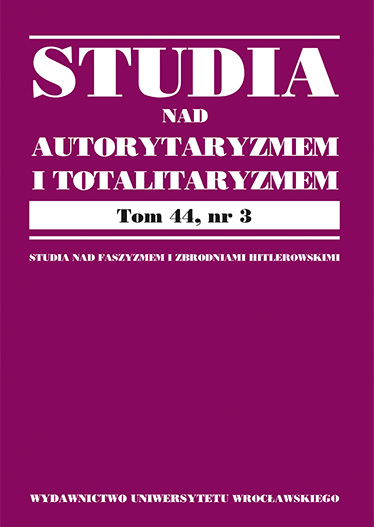Reforma konstytucyjna w Kirgistanie w 2021 roku na tle środkowoazjatyckiego konstytucjonalizmu autorytarnego
The constitutional reform in Kyrgyzstan in 2021 in the context of Central Asian authoritarian constitutionalism
Author(s): Rafał CzachorSubject(s): Politics, Governance, Public Administration, Public Law
Published by: Wydawnictwo Uniwersytetu Wrocławskiego
Keywords: authoritarian constitutionalism; Central Asian constitutionalism; Kyrgyzstan
Summary/Abstract: In terms of the dynamics of the state system’s reforms, Central Asian Kyrgyzstan is a unique case. In 2005, 2010, and 2020 a series of crises of state power, referred to as „revolutions”, unfolded there. Among their consequences were constitutional reforms that concerned the legal construction of the main state organs. The latest reform of 2021 brought an end to the semi-presidential system and established domination of the president over the state system. The analysis of such reforms can be carried out with reference to the paradigm of authoritarian constitutionalism. The following paper undertakes the analysis of the constitutional evolution of Kyrgyzstan and its current situation in a broader context of the Central Asian constitutionalism. The paper attempts to reconstruct the concept of the authoritarian constitutionalism, determine the peculiarity of Central Asian constitutionalism and the scope of the constitutional reform that took place in Kyrgyzstan in 2021. The core thesis of the paper asserts that this reform fully fits the paradigm of authoritarian constitutionalism and regional, Central Asian political traditions of strong and centralized state power. The paper employs doctrinal, comparative methods as well as the exegesis of the constitutions. This paper consists of four parts. The first chapter discusses the scope of authoritarian constitutionalism and asserts its dual-faceted legal and political nature. The second chapter briefly presents the Central Asian specificity of constitutionalism and nation building and state building processes. Consecutively it turns to the case of Kyrgyzstan and pays closer attention to the latest constitutional reforms. The fourth chapter contains a detailed analysis of the current Kyrgyz constitution in regard to the authoritarian constitutionalism paradigm. The research led the author to the conclusion that authoritarian constitutionalism is a not broad theory, but a paradigm, a certain scientific perspective that is embedded on the crossroads between constitutional law and a scientific study of political systems. It is successfully applied in investigations of the non-democratic model of governance. It puts emphasis on a specific legal position of the executive that overwhelmingly dominates the legislature and is prone to abuse. In the case of contemporary Kyrgyzstan, such a model of power is determined by the legal and political specificity of the region. The constitutional reform of 2021 strengthened the position of the president, introduced non-parliamentary representative bodies and limited the independence of the judiciary.
Journal: Studia nad Autorytaryzmem i Totalitaryzmem
- Issue Year: 44/2022
- Issue No: 3
- Page Range: 45-63
- Page Count: 19
- Language: Polish

